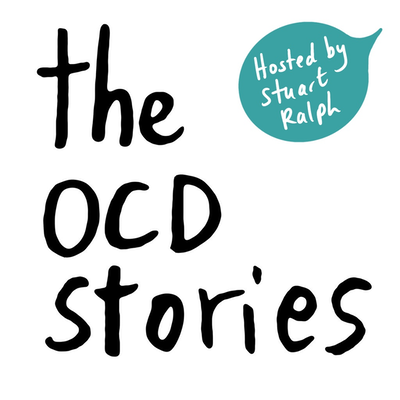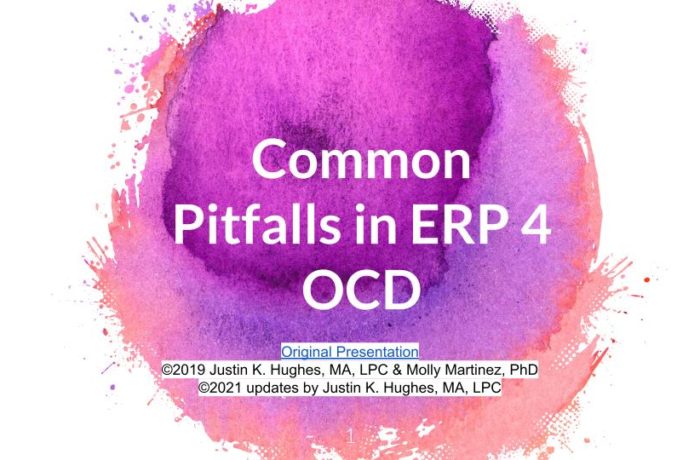Justin’s Blog: “The Jog”
120+ Articles Driven by Research and Practice
Can Christians Be Free From Uncertainty? Part 2/4: Christian Intolerance of Uncertainty
This four part series is meant to be a brief, yet fairly comprehensive, overview into the world of uncertainty for Christians. SUMMARY: In Part 1, uncertainty is explored as a human experience- one for which Christians do not escape simply in lieu of being a faithful follower. Part 2 addresses what ways people generally handle […]
Read More >Can Christians Be Free From Uncertainty? Part 1/4: Uncertainty Can Be Utterly Uncomfortable
This four part series is meant to be a brief, yet fairly comprehensive, overview into the world of uncertainty for Christians. SUMMARY: In Part 1, uncertainty is explored as a human experience- one for which Christians do not escape simply in lieu of being a faithful follower. Part 2 addresses what ways people generally handle […]
Read More >Common Pitfalls in ERP 4 OCD- FREE Training
As a sequel to my popular, “ERP 4 OCD- Ultimate Guide to Treating OCD” training, here is the full length training on “Common Pitfalls in ERP 4 OCD.” I have given this to OCD sufferers, family/friends, clergy, and clinicians. May it benefit you wherever you find yourself today. Intro Evidence-based treatment for Obsessive Compulsive Disorder […]
Read More >Sustainability: Making A Lifestyle Out Of Learning and Exposures
With most things we do in life that are healthy and good, sustainability requires the ability to stick with something over the long haul. Health Requires Realism & Cutting Out Shame Theoretically, with any one aspect of growth we might be able to figure it out ourselves, so we may think to ourselves, “I don’t […]
Read More >Five Principal Christian Commitments To Help Guide the OCD Sufferer
Peter’s Paradox Peter* came to counseling and admitted he was overly obsessive about faith matters- and that obsessing itself caused problems. But he couldn’t break free. He acknowledged the classic paradox of OCD: insight outside of the moment to see that his behavior was unreasonable, but simultaneously doubt and lack of insight during severe periods […]
Read More >the OCD Stories: Walking faithfully as a Christian while doing OCD treatment- considerations and common concerns
I once again joined host Stuart Ralph in the OCD Stories podcast. My prior one, “Faith, Spirituality and Religion in OCD Therapy” (#250), led us to go even deeper into the topic, specifically for Christians who have OCD. These bullet points are a very rough draft of what we covered. Here it is: Justin Hughes: Walking faithfully as […]
Read More >How To Use A Functional Assessment (Fast Version)
This is the shortened version of the article, the “PRO Version” available here. Functional Assessment Defined A functional assessment (or analysis, FA) is a framework that clinicians use to assess and plan treatment. It is simply “any empirical demonstration of a cause-effect relation,” its purpose being “to determine which sources of reinforcement account for problem […]
Read More >Where Your Thinking Will Trip You Up In Obsessive Compulsive Disorder (OCD)
Talk therapy is not the way to improve with Obsessive Compulsive Disorder (OCD). Talk therapy is also known as “supportive psychotherapy” or insight-oriented therapies. In many cases, these approaches can OCD worse. Writer and actress Lena Dunham shares how she experienced both sides of the street. The Gold Standard of treatment is Exposure and Response Prevention […]
Read More >How Alcohol Interferes with Getting Over Your Fears (Hint: It Interrupts Fear Disconfirmation)
The Question It was a good question. Anne* suffered extensively with fear, anxiety, and OCD. She wanted any relief she could find. “Can I drink a little alcohol during exposures?” Little Therapist Justin As an early specialist in OCD, I said to Anne my favorite thing to say when I don’t know: “I don’t know.” […]
Read More >Microsteps- Harnessing Something You Use Everyday To Get You Closer To A Goal
Small changes, over time, lead to big results. Keep Choppin’ If you chop a tree with an axe once per day, you won’t see much progress. Daily for a year and a tree (most) won’t stand a chance. However, we are often limited with black and white, insular thinking (a cognitive distortion), also called “all […]
Read More >The Holy Spirit is Different Than Your Emotions or Thoughts- Part 2 of 2: How Does God Speak?
Our Feelings and Thoughts Are Not A Guarantee In Part 1 of 2: Doubt, Fear, and Uncertainty, I emphasized a key point: Just because a problem deals with a spiritual issue doesn’t mean it must be exclusively a spiritual problem addressed through exclusively spiritual means. Let me add one: Just because I feel or think something […]
Read More >Common Pitfalls In ERP (Exposure & Response Prevention) 4 OCD Livestream
Join me on Wednesday, August 25th, 6:00 – 7:30 pm CST, for “Common Pitfalls In ERP (Exposure & Response Prevention) 4 OCD” Livestream Evidence-based treatment for Obsessive Compulsive Disorder (OCD) is not tremendously difficult to understand. It involves things like tracking when you compulse, learning to face challenging situations without compulsion, and how to tolerate […]
Read More >Get Unstuck: Your Intro to Facing Fear & Getting Healthy
As a gift to my subscribers, the guide, Get Unstuck: Your Intro to Facing Fear & Getting Healthy is YOURS, FREE. Not a subscriber? This is the updated version of the prior “Thriving Mental Health Alongside COVID-19,” leaving the best intact along with new considerations for 2021 and several new handouts, connected articles, guides, and […]
Read More >Why EMDR Is Not An Evidence-based Treatment for OCD
I’m just gonna say it: EMDR (Eye Movement Desensitization and Reprocessing) is not an established evidence-based treatment for OCD. It is not a first line treatment (aka, best first pick), nor does it have any specific research backing as a comprehensive OCD treatment at this time. Does EMDR Treat OCD? This topic is raised often […]
Read More >An Introduction To The “Over-Active Conscience”: Understanding Scrupulosity & Obsessive-Compulsive Disorder by Dr. Ted Witzig
This article is aimed at Christians but also provides a rich overview on scrupulosity. It was written by Ted Witzig, Jr., PhD and was graciously allowed to be reproduced in its entirety. I first met Dr. Witzig at IOCDF conferences. He is compassionate, intelligent, and provides some of the best overviews I’ve seen with OCD […]
Read More >















